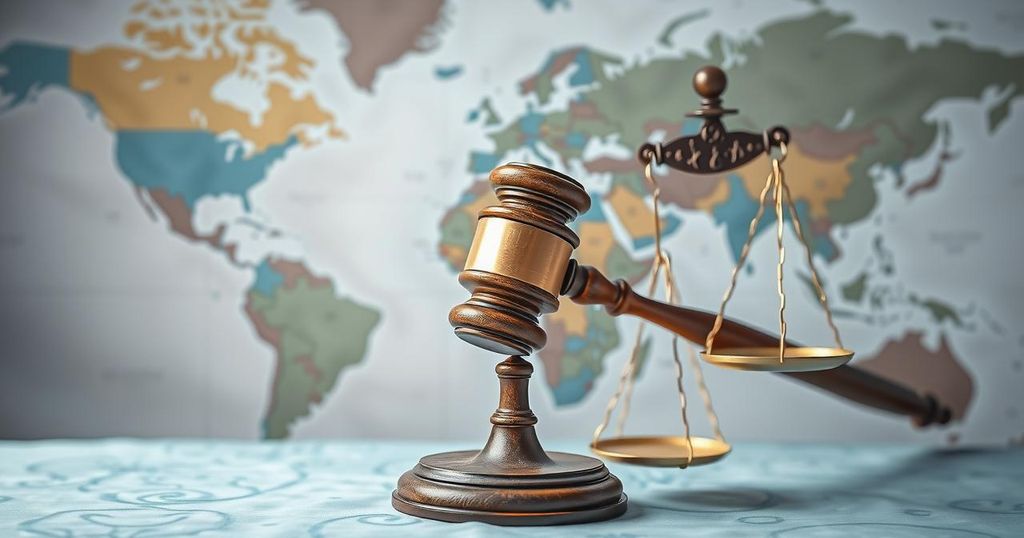Guyana intends to approach the UN’s International Court of Justice to challenge Venezuela’s plans for electing a governor in the disputed Essequibo region, claiming it violates international law and a previous agreement. The Essequibo area is rich in resources and central to a longstanding territorial dispute between the two nations. Recent oil discoveries and tensions over military activities have escalated the situation, prompting international legal intervention.
Guyana has announced its intention to enlist the support of the United Nations’ International Court of Justice (ICJ) in response to Venezuela’s plans to appoint a governor for the contested Essequibo region. This territory, rich in natural resources, has been subject to a longstanding claim by Venezuela. Guyana’s foreign ministry emphasized that this action contravenes a December 2022 agreement aimed at preventing conflict and escalating tensions regarding the boundary dispute.
In its statement, the Guyanese government asserted that the residents of Essequibo are citizens of Guyana and that Venezuela’s plan would constitute a violation of international law and U.N. principles. The ministry plans to request provisional measures from the ICJ to prevent Venezuela from proceeding with its electoral plan. They expressed that Venezuela’s intention to incorporate Essequibo compromises both the judicial proceedings and the authority of the court.
Historically, Venezuela has claimed Essequibo based on its colonial boundaries during the Spanish era, challenging the border established by international arbitration in 1899. After unsuccessful negotiations, Guyana referred the issue to the ICJ in 2018, seeking validation of the 1899 border. Venezuela, however, contends that a 1966 agreement has rendered the arbitration irrelevant.
The dispute intensified following significant oil discoveries off Guyana’s coast in 2015, with production levels now reaching 650,000 barrels daily. Additionally, tensions were recently heightened when Guyana protested against Venezuelan military activities on the Ankoko Island, perceiving them as violations of its sovereignty.
Despite a reduction in tensions during much of the previous year, recent developments have prompted concern, particularly Guyana’s accommodation of U.S. military flights over Georgetown in May as a show of support against Venezuelan assertiveness.
The dispute between Guyana and Venezuela over the Essequibo region has historical roots, tracing back to colonial boundaries established when Guyana was a British colony. The territory is not only a source of national pride but also rich in natural resources, including significant oil reserves that have bolstered economic interests. The situation escalated after Venezuela expressed intentions to assert administrative control over the area, igniting diplomatic tensions and prompting calls for international intervention to uphold established legal agreements.
Guyana seeks intervention from the ICJ to curb Venezuela’s move to elect a governor for the contested Essequibo region, citing violations of international law and prior agreements. The long-standing territorial dispute, exacerbated by resource interests and military posturing, underscores the importance of lawful conflict resolution mechanisms. The ongoing situation reflects the broader implications of national sovereignty and international legal frameworks in addressing territorial disputes.
Original Source: abcnews.go.com






